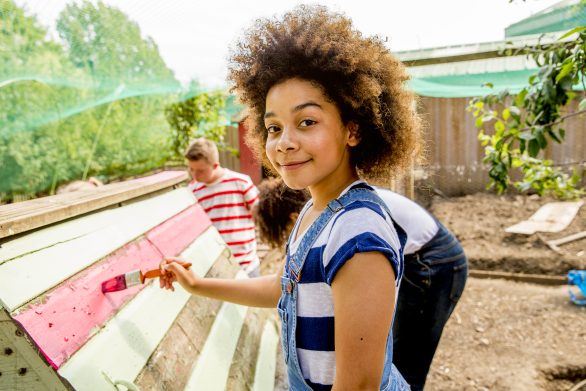We support youth travel for those aged 10 to 17 in precarious situations.
Key facts Indicators Young people’s needs Our expertsWhy travel?

Key facts Indicators Young people’s needs Our expertsWhy travel?
1 youth in 7 lives in a low-income household
According to the Observatoire Jeunes et Société, 14% of young people in Quebec live in low-income households.
1 high school student in 4 experiences low self-esteem
According to the Rosenberg Scale.
1 youth in 3 lives with psychological distress
According to the Observatoire Jeunes et Société, more than one-third of young people score high on the psychological distress scale.
5 indicators highlighting the need to create a more equal and open world for young people from disadvantaged backgrounds
Education
22%
of young people in Quebec from disadvantaged backgrounds leave school without a diploma or qualifications.
mental health
2/10
of secondary students in Quebec have at least one diagnosis of a mental health illness.

In spite of the prejudices that surround it, adolescence is one of the richest periods in a person’s life. Not only is it a period of significant physical changes, but some neuropsychological studies also show that teens’ brains undergo a major “reshuffling” during this phase of existence. Looking to build their adult life while discovering themselves, teens yearn to leave the family environment and to shift toward their peers. The world around them takes on a whole new meaning and invites them, little by little, to discover it.
The 7 psychological needs of young people, according to Michel Fize
Need for Trust
Need for Dialogue
Need for Security
Need for Autonomy
Need for Taking responsibility
Need for Affection
Need for Hope

Leading experts have been mobilized to not only contribute scientific support to our educational pathway, but also to measure the impact of our approach and to validate our intentions toward young people, their families and their schools.

Travel encourages young people to think differently, motivates them to chart their own path, and to envision new possibilities. This wealth of experiences has the power to completely transform their life journey.
Many essential life skills are developed during a single trip:
Getting out of one’s comfort zone to explore new places and discover different cultures.
Helping others and sharing moments with other young people.
Enriching encounters and friendships with people from all over the world.
Having a better understanding of the world and the people in it.
Learning to find information and planning a trip.
Trying new activities to acquire life skills.